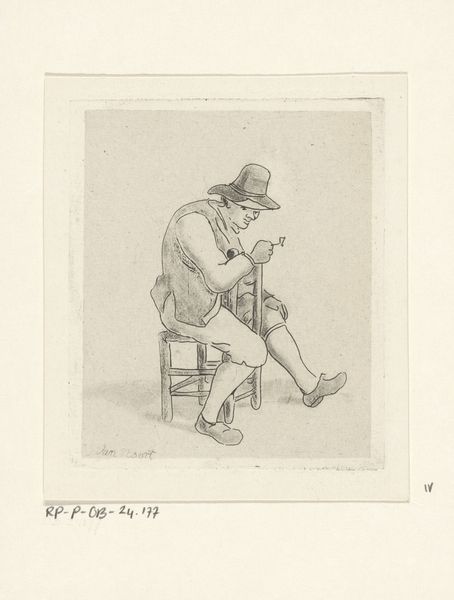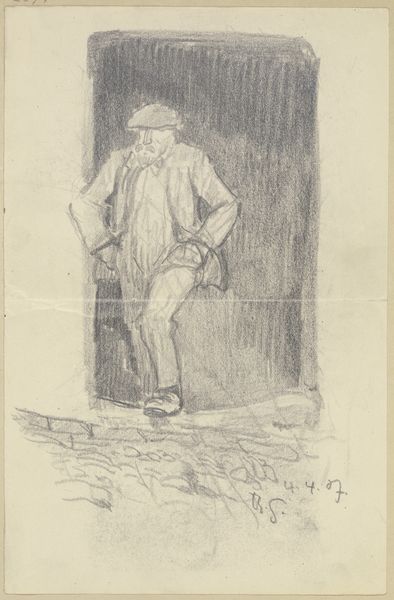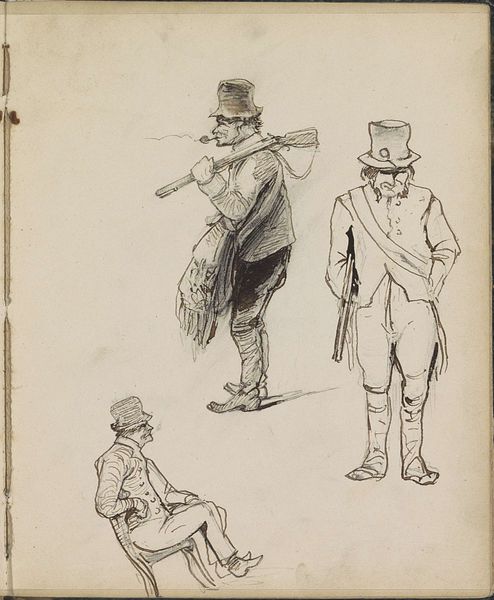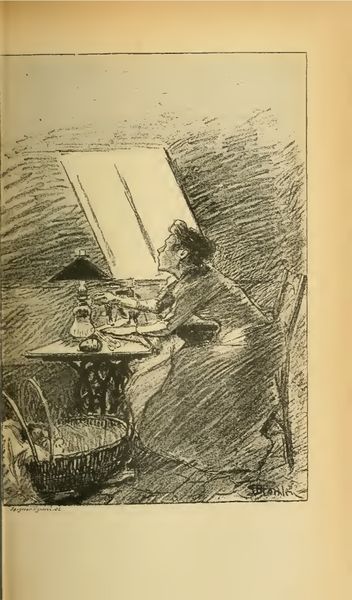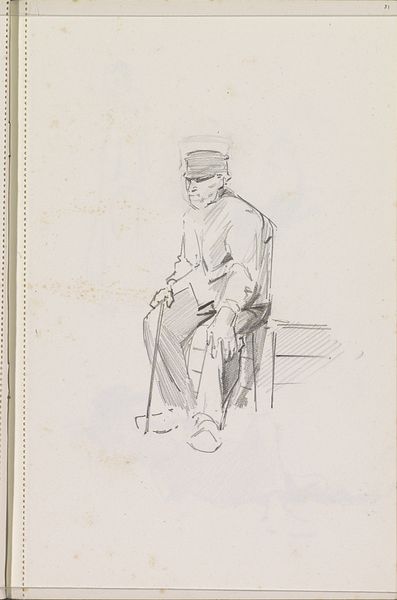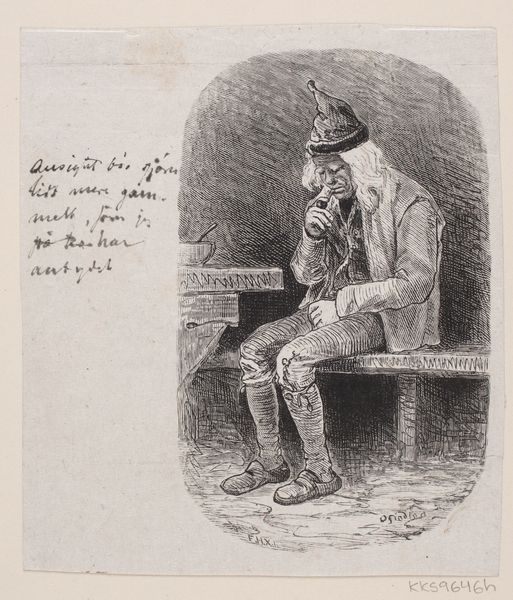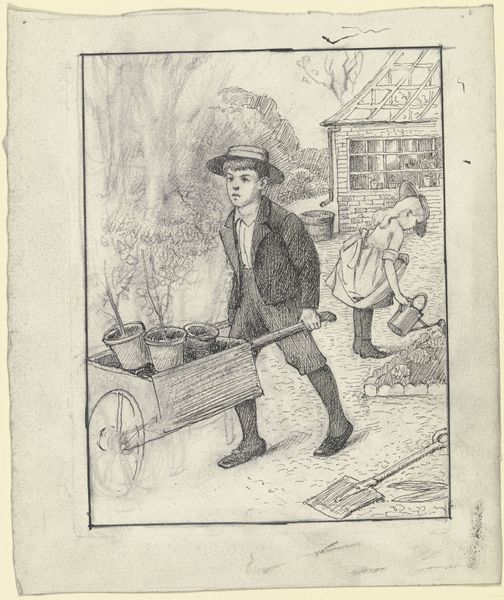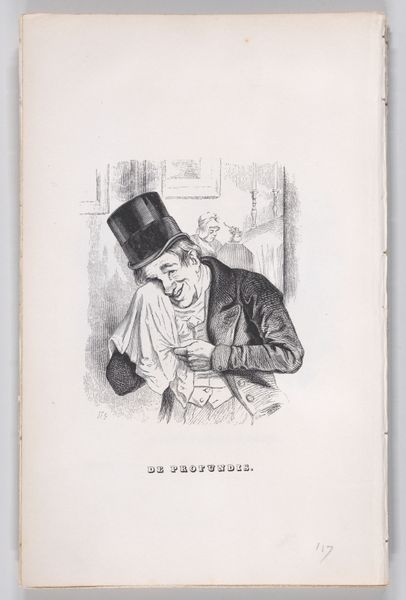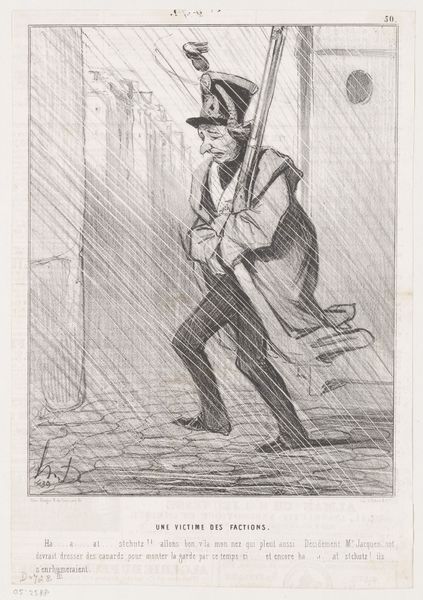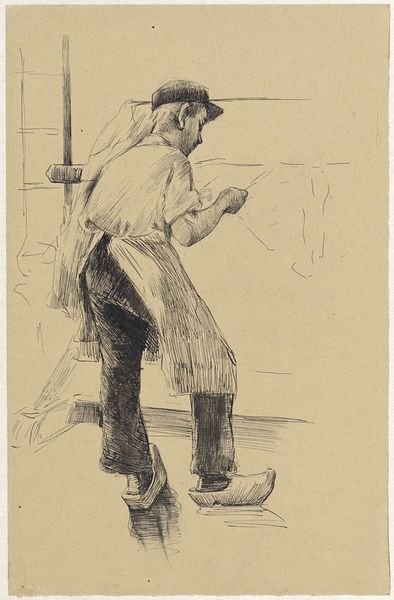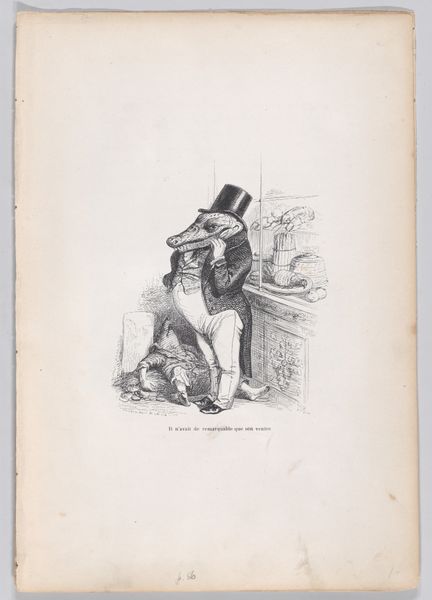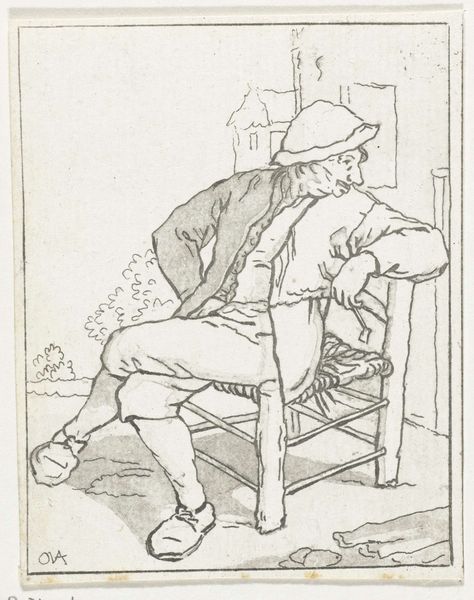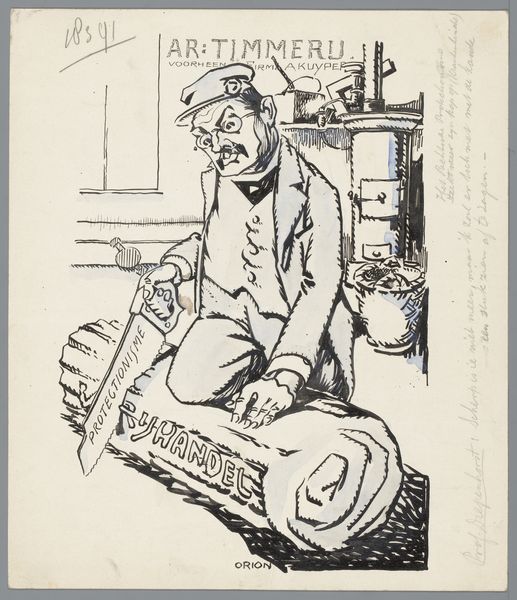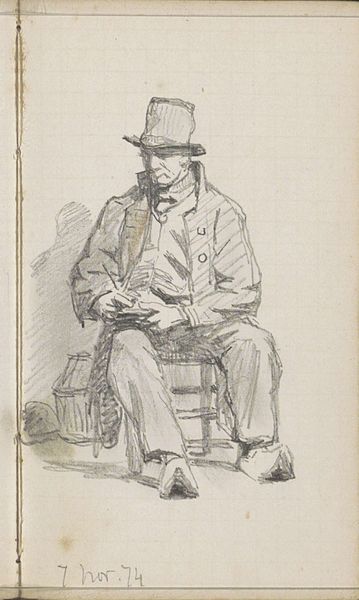
drawing, ink, pencil
#
portrait
#
drawing
#
art-nouveau
#
ink drawing
#
pen sketch
#
pencil sketch
#
ink
#
pencil
#
symbolism
#
genre-painting
#
realism
Copyright: Public domain
Curator: This piece is by Théophile Alexandre Steinlen, and it's titled "Le Mot Passe." Editor: My first impression is one of loneliness. The rough texture of the drawing itself seems to emphasize the man’s solitude. The sketch-like quality conveys a sense of transience, as if he might disappear at any moment. Curator: It's executed using ink and pencil, materials readily available and inexpensive, fitting Steinlen's focus on depicting the lives of ordinary people. The deliberate roughness in the drawing points towards a democratization of art-making. It suggests the act of creation itself, challenging the idea of art as purely refined skill. Editor: And that focus aligns directly with the cultural shifts occurring then. Steinlen depicted everyday life – here the genre-scene with this solitary man. It challenges the norms of the traditional salon and brings the lower classes to the forefront. His posters and illustrations were displayed in the streets, made for mass consumption. How do you think this impacts the perception of the artwork? Curator: Exactly! His choice of mass production techniques reflects his political and social ideologies. It allowed for broader access, rather than limiting the audience to elite circles, reflecting his commitment to art as a tool for social change, especially during periods of intense political transformation and public debate. Editor: Indeed. This work provides insight into the visual culture of the time. We can investigate Steinlen's influence on later movements that similarly democratized art for political mobilization. What the artistic labor involved tells us is how such visual statements shaped public awareness. Curator: Thinking about it, that direct link between his material choices, and his dedication to illustrating the working class provides rich information for interpreting the print's message. Editor: Right. We see this not just as art for art’s sake, but as evidence of how art actively participates in, and shapes public consciousness during its time. Curator: Indeed, looking at "Le Mot Passe", it feels like examining a direct channel into past political discussions and creative production processes.
Comments
No comments
Be the first to comment and join the conversation on the ultimate creative platform.
